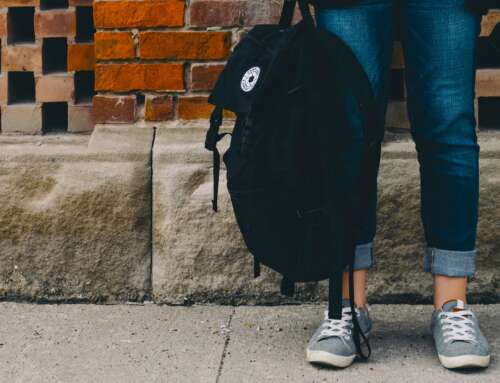Lockdown during the COVID-19 pandemic uprooted a lot of our usual routines, and did it twice for those of us in Melbourne. But the ‘great disruption’ has also given birth to new routines.
While lockdown one may have been the time for baking bread, language apps, musical instruments and home workout routines, lockdown two has looked a bit different for many of us. Less in the way of aspirational activities, and more finding joy in the little things – family bike rides, game nights, or maybe just trying out a new recipe. We’ve also seen some more bad behaviours slip in – being at home all the time has created, for instance, an environment for ‘iso-snacking’.
The months we’ve spent staying at home have felt like a very long time, but if there’s a routine you’d like to keep going, it may not have been long enough to truly embed it.
Melburnians are eagerly awaiting the easing of restrictions. As we’re able to leave our houses more, our routines will inevitably shift again, as they already have multiple times this year, but we shouldn’t let the positive routines we’ve cultivated wilt as we come out of lockdown.
It’s also a good time to replace any of those bad behaviours used to survive lockdown. Now is the perfect time to decide if we want to maintain some of the positive changes we’ve made, and plan for how we can do that.
Habits and routines take time
Research suggests it takes about 66 days to establish a habit, but this differs between people and behaviours depending on how difficult the behaviour is, and how much motivation it requires. For example, it takes 59 days to habitually drink a glass of water in the morning, but 91 days to get moving and do some exercise when you wake up.

Not all new routines are created equal, and those that require less effort will be easier to keep. Practising a language on a smartphone app for 10 minutes a day is likely to be easier and quicker to embed into your routine compared with a strenuous workout regime.
If your new routine of choice is on the more challenging side, you may want to think about ways to make it easier. For example, break it into ‘chunks’ and just do one chunk at a time, or limit the time commitment – set aside a designated period just for that activity.
Check your attitude
On top of the ease and the motivation is the attitude we have towards the behaviour. It may have seemed difficult to find time for a regular family bike ride before lockdown, but now it’s an enjoyable way to get outside after work.
That shift in attitude towards new behaviours is going to be an important factor in your motivation to keep going. If you can keep a positive mindset towards your new routine, and take a moment to think about all the unexpected benefits it’s provided you, you might find you’re more motivated to keep going.
Location, location, location
Behaviours and routines are context (place) and time-specific.
Eating a salad for lunch at home is different from trying to eat the same salad at the office (where there’s the pull of colleagues, local cafes and fresh air). While we’ve been stuck at home, we’ve had time to devote to establishing these new routines, but when we’re able to move around more, there’s a threat of disrupting them.

But this is good news for that ‘iso-snacking’ you may want to cut back on. When we can be out and about more, the urge to snack won’t be so frequent, because those housebound cues won’t be there to activate your snacking.
Here’s a tip: Identify the routines you want to keep, and find a time when you can consistently do it, at a time that’s unlikely to be disrupted when restrictions are eased. For example, if you’re learning a new language, perhaps you could do this while you’re getting ready for bed. This will increase your chances of success.
Back to business
As our lives open up again, other priorities may begin to crowd out new routines.
There will be a strong pull (both habitually and emotionally) to do things the way we used to. We may even find comfort in old routines after such a drastic disruption to our lives. So, we need to be conscious of the routines we’d like to keep, and develop a plan to do it. That way, when things do go back to normal, we don’t.

Having a better work-life balance, spending more time with your family, not commuting to work every day – these are all changes that have a positive impact on our life. It’s a good time to reset some of the rules.
It’s important to know there are multiple influences on our behaviours. Our intentions, motivations and routines are just one part of why we do what we do.
Although we may have good intentions to keep up the positive aspects of the routines we’ve established during lockdown, the reality is that old behaviours die hard. So, in a few months, don’t give yourself a hard time if you’re not speaking a second language.
This article was first published on Monash Lens. Read the original article
Images: Unsplash







Leave A Comment